UPIC’s Telebehavioral Health Service to Aid Older Adults
When it comes to the need for mental health services, our older adult population will suffer at the same pace, if not outpace teens and women.
The CDC estimates up to 20% of the nation’s 39 million adults aged 65 and older are affected by depression or persistent feelings of sadness, anxiousness hopelessness, or emptiness. And for those 55 and older, 20% have some form of mental disorder.
Not only is the aging of the Baby Boomer population stressing the need for geriatric health services, but extended life expectancies and severe lack of providers will exaggerate the pending crisis.
In response to this need, UPIC Health has developed a groundbreaking video service that can help combat this gap in mental health. The scalable video social work (VSW) platform connects patients with counselors, licensed clinical social workers (LCSWs), and other providers through a pioneering automated video distribution. This ensures that patients in crisis will not have to wait when they are most in need of counseling.
“ Against the backdrop of a mental health crisis in this country, from teen suicide to mass shootings to new revelations of abuse against women, it’s clear that women and teens, and even the elderly, are especially vulnerable when it comes to access.” -UPIC Health CEO Mary Tucker.
The video service offers initial screenings, regular appointments, and accepts emergency calls when patients are in crisis. It’s vitally important to have follow through when dealing with these patient issues, Tucker added.
For the elderly population, insufficient care stems from the stigma surrounding mental health and lack of symptom awareness.
“I didn’t know anything about depression, so I didn’t know I was depressed. The questionnaire was essential to getting me in for treatment. It was sent to me three times before I sent it back. I took medication and went to a class that helped me learn skills to work on the depression. I now have two friends getting treatment for depression since I told them about my situation.” – Participant in a depression care management program (CDC, 2009a)
Technology is the Future of Care
The market is ready for video and telephonic applications and providers are responding.
More than 90 percent of the country’s youth want full electronic two-way communication with their providers, a recent study by Jefferson Health reports. Also, nearly nine out of 10 adults ages 40 and older said they would be comfortable using at least one type of telemedicine for themselves or an aging loved one, another recent study found.
The market is responding. Worldwide revenue for telehealth devices and services is expected to swell to $4.5 billion in 2018, up from $440.6 million in 2013, based on data from an IHS report.
UPIC’s video service will provide helpful resources to aid older adults suffering from mental illness, but also could reduce caregiver stress and burnout by bringing more efficiency to care. Caregivers (75% of which are women) often have to juggle work and taking care of their own families. Many also struggle with the negative financial impact caused by being a primary caregiver. On top of that, caregiver burnout rates are increased when coupled with mental illness.
UPIC believes reducing commute times and appointment wait times with video access to providers will reduce the economic stressors on many levels.
Hurdles Remain
Evidence has shown that caregivers support the notion of telemedicine, with 87 percent of current caregivers responding that they would be comfortable using at least one form of telemedicine for their older loved one.
Despite the obvious interests in telemedicine, several barriers remain.
“I think the parents would be happier at home instead of being in the doctor’s office waiting an hour to see a doctor for 15 minutes,” said Don Withey of Courtland, New York, who helps his 92-year-old father and 89-year-old mother get to their appointments. But, he said in an Insurance Journal article: “we don’t know much more about it other than the fact you can talk to a doctor over the computer or smartphone.”
Two main concerns about health technology include Medicare coverage, and sufficient cybersecurity. While there are still plenty of hurdles to overcome, there is no doubt about the importance telemedicine will hold in our future.
“We are very excited to work together with UPIC Health to take down the geographic and income barriers to reaching a behavioral health provider. The video telebehavioral mobile app allows convenience, access and engagement.” – One Touch Video Chat’s COO, Carrie Chitsey Wells in UPIC’s press release announcing the new services.
The VSW service is also expected to serve women, teens in school, and people that use opioid medications.
Depression in older adults is not a ‘fact of life’. It can be treated, and adults of any age can enjoy life with great mental health and well-being. If you or anyone you know is experiencing persistent feelings of anxiety and depression, please reach out to a health professional for confidential services. Visit the Geriatric Mental Health Foundation for a list of local resources.
Author Jessica Lay is UPIC’s Program Lead for UPICares, the organization’s philanthropic initiative. She spends half of her time assisting patients through UPIC’s contact center and recently completed a degree in Aging Services Management. Follow us on Twitter @UPICHealth.








